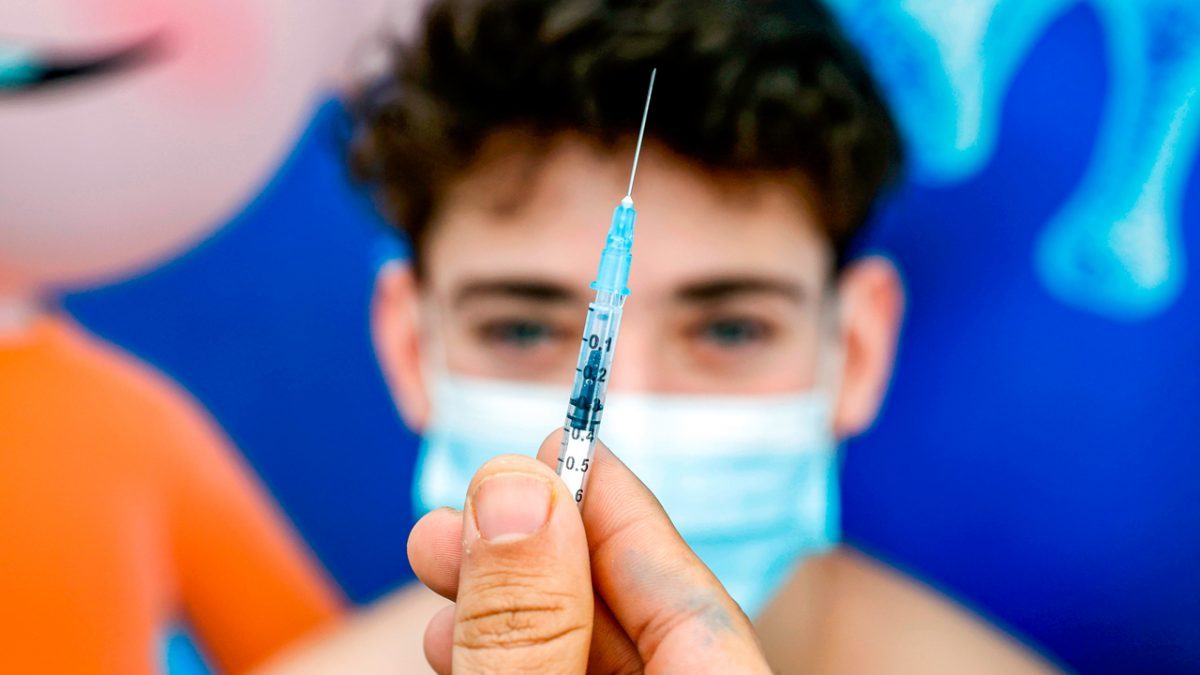Teens and younger kids are more vulnerable to the pandemic virus and suffer from serious health complications if they do become infected. That is why they must get vaccinated as soon as possible. With the vaccines now available, they can finally start to get back to some sense of normalcy. Of course, vaccines don’t make anyone corona-proof. But they offer a much-needed layer of protection by reducing the risks of hospitalization and death to a great degree. So if your child is eligible, be sure to get them vaccinated. Like every parent, you may worry about the health of your young kids. While it is legitimate, you must remember that COVID-19 vaccines for teens go through strict clinical tests before securing approval.
Health-governing bodies like CDC and FDA monitor them thoroughly for safety, update the public about their discoveries, and use any valuable recommendation to improve them further. Here are some critical insights on vaccination.
Severe health complications after vaccination in kids and teens
Generally, teens and kids don’t get any severe reactions from the vaccine; if they do, the symptoms manifest in a few days. Cases of myocarditis and pericarditis (heart-related diseases) occurred among a handful of children and teenagers (age five and older) after a dose of Pfizer-BioNTech and Moderna. The most common victims have been males aged 12 – 39. But these rare risks also come down if there is a considerable gap between the two doses. As per a study, nearly 20 cases of myocarditis surfaced between November 2021 and April 2022 among kids (age 5 to 11 years of age) out of about 18.1 million Pfizer-BioNTech COVID-19 vaccine doses. And myocarditis was more common in young male adults and adolescents after the second vaccination dose.
In clinical trials, another side effect of the COVID-19 vaccines for teens and young kids was febrile seizures, which were rare and prevalent among Moderna and Pfizer recipients. Some can get allergic reactions after the doses. Although rare, if the case seems severe, the healthcare experts remain prepared with their emergency services.
In this same vein, people have many misconceptions about COVID-related steps, which can be an outcome of the appearance of one wave after another and the stress caused by it all. Some believe that vaccines use live viruses, due to which one can become infected. However, Moderna and Pfizer-BioNTech are mRNA vaccines that don’t interfere with your DNA. They only educate your body about how to combat the virus that leads to COVID infection. After a few days of the dose, mRNA doesn’t stay in the body. Likewise, some believe that mRNA or other vaccines can affect a woman’s ability to conceive, which is nothing but another false belief.
According to MyBioSource, about 3% of Americans think the coronavirus pandemic is the biggest concern, against 8% in 2021 and another 45% in 2020. It is also a challenge. While the new wave misses the severe effects, you cannot overlook the intensity of viral spread. And if you recognize this, you can make a better decision for your young’s health.
Pfizer-BioNTech/ COMIRNATY vaccine
Two doses of this vaccine are for five years and older kids. They can complete their vaccine doses from 3 to 8 weeks. If someone has weak immunity, they can get their third dose after four weeks following the second dose. After two doses in the primary series, a child can go for a booster. Kids age four and younger (up to 6 months) have three injections in the initial series. The gap between the first and the second dose will be three to eight weeks and a minimum of eight weeks for the third dose. Booster shots are not available for them right now.
Moderna/ Spikevax Vaccine
The primary series of COVID-19 vaccines for teens includes two doses for 18 years and older age groups. The duration between the two doses can be 4 to 8 weeks; someone with low immunity can go for a third dose, keeping a gap of 4 weeks from the second. Moderna vaccines for six months to 17 years also include two shots in the primary series. If your kid has weak immunity, they can also get a third dose. A booster shot is also available for 18 years and older. But others in the younger age bracket have no access to it.
The studies show that both these vaccinations effectively fight the COVID-19 virus but don’t provide long-lasting protection. Hence, it is necessary to get booster shots. These steps are crucial to avoid hospitalization and even cases of death.
If you feel worried about your kid’s health after the vaccine, you can access online resources or journals that guide you about the precautions and safety measures. You can also read about ingredients contained in the vaccines to remove unnecessary fear or prejudice against the solutions. Only through proper knowledge and information can you be more alert and up-to-date. So trust reliable sources.








